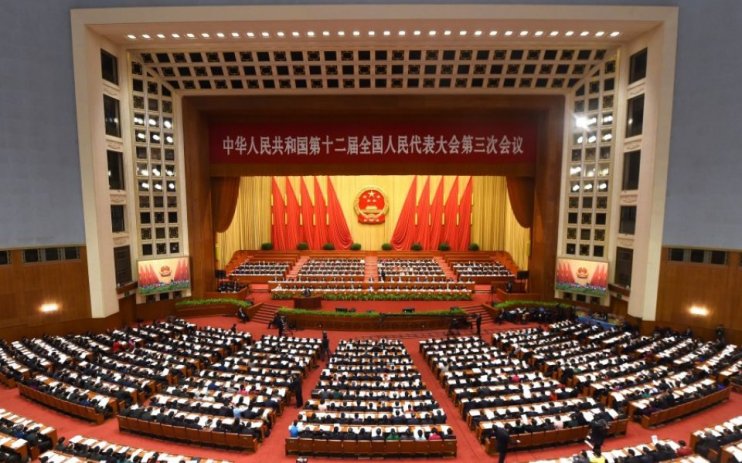Before the Bell: Powell disappoints while China decides

Last night was heavy on surprises, leading to plenty of drama. OPEC+ wrong-footed markets by leaving their production cuts intact for another month, delivering a 150,000 bpd increase to Russia and Kazakhstan, with oil prices rocketing higher.
US stocks suffered large losses yesterday due to the rise in government bond yields, which was triggered by concerns that higher inflation is on the horizon. Federal Reserve Chairman Jerome Powell chose not to dampen the inflation fires as well.
Sticking to his previous guidance that the recent inflation was transitory, expressing comfort with present moves in the markets, and that the Fed was very much focused on assisting the recovery in employment, commented Jeffrey Halley, senior market analyst at OANDA, this morning.
National People’s Congress meeting today
The National People’s Congress is meeting today, announcing targets for the next five-year plan.
“Already China has announced a 6 per cent GDP target for this year, having dropped the target entirely for 2020,” Halley said.
“They have also expressed interest in deepening trade with South Korea and joining the Regional Comprehensive Economic Partnership,” he added.
Also expected will be announcements on massive investments in technology research to increase self-sufficiency.
“All will be positive for Asia and may take the edge off the gloom,” Halley said.
Across the pond
Today’s US non-farm payrolls report is likely to be the main event of the session as it will give us an update of the country’s recovery, and it will be closely watched in light of the big equity declines seen yesterday, David Madden, market analyst at CMC Markets UK, said this morning.
A survey carried out by Reuters shows that economists are expecting the February jobs report to be 182,000, which would a big increase on the 49,000 jobs added in January, details will be posted at 1.30pm UK time.
Unemployment is anticipated to hold steady at 6.3 per cent, while the yearly average earnings metric is tipped to cool from 5.4 per cent to 5.3 per cent.
“Historically, a dip in earnings would be viewed as negative for the economy but in the current climate it could be a sign that lower income workers have returned to the labour market,” Madden said.
The participation rate will also be in focus, he continued, as the January report showed that it ticked lower to 61.4 per cent.
“A fall in the rate could be down to some people giving up on actively looking for work. Should the participation rate increase and the unemployment rate fall that would suggest the labour market is strengthening,” Madden noted.
Powell
Stock markets in Europe had a mixed finish yesterday as concerns about firmer bond yields impacted equities once again. The FTSE 100 and the DAX 30 posted modest losses, the CAC 40 essentially ended the day unchanged, while the FTSE MIB posted a small gain, Madden said.
“The tick higher in the US 10-year yield was playing on traders’ minds throughout the day but there was a sharp move higher in the yield following the update from [Fed head] Jerome Powell,” he said.
Powell reiterated that the US central bank is a long way from achieving its goals, but he feels that job creation will pick up.
“The central banker anticipates higher growth, and with that, he cautioned about a temporary rise in inflationary pressure but for the now he doesn’t think the move higher in inflation will be large enough or last that long to warrant a tightening of monetary policy,” Madden said.
There was a jolt higher in the US 10-year yield following the inflation comment, in fact, the yield hit its highest mark since late February, he added.
Selling pressure on US stocks increased in the wake of the moves in the bond market. Lately, tech stocks have been under fire and we saw even more of that last night, Madden continued, pointing out that the NASDAQ 100 traded at a level last seen in early December, while the S&P 500 hit a one month low.